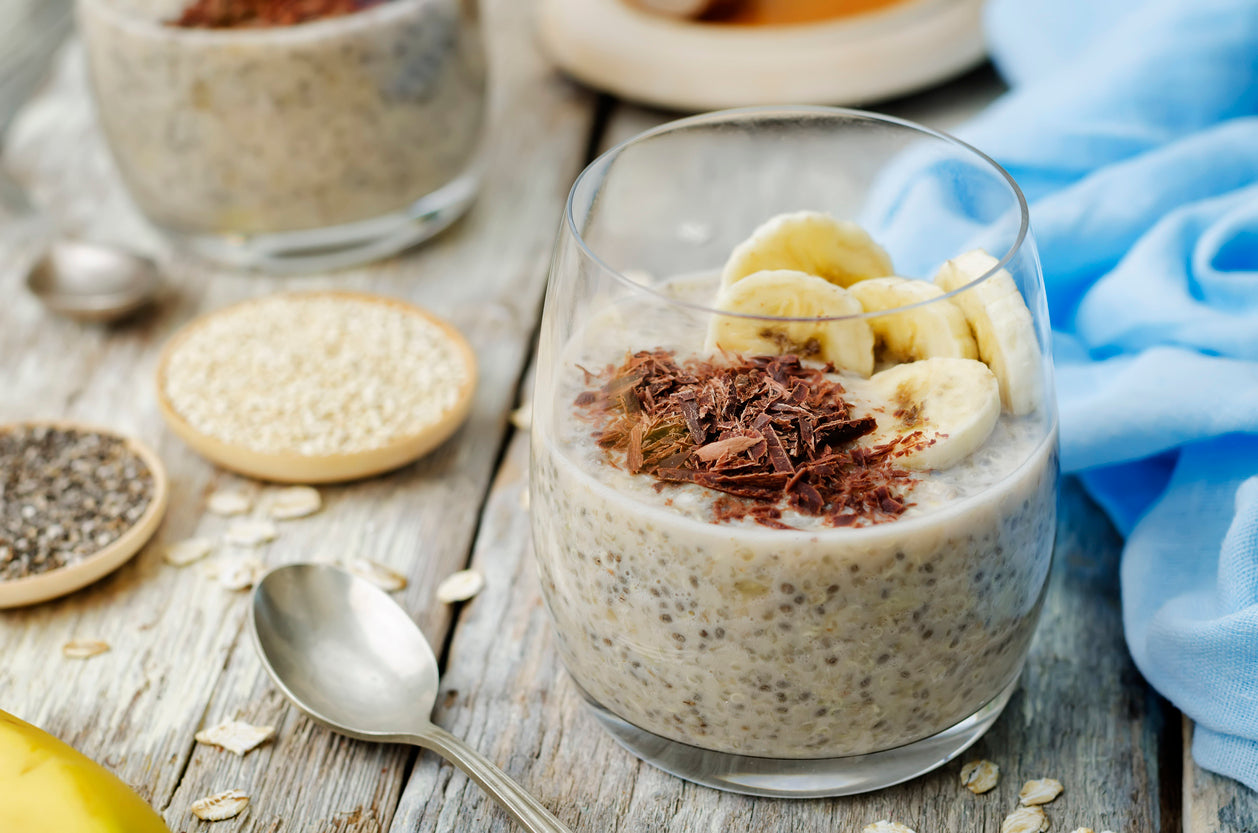New research reveals that chia seeds can promote weight loss and heart health

They may be small, but they are mighty. Chia seeds from the plant Salvia hispanica were once a mainstay in the diets of ancient Aztec and Mayan tribes, who relied upon them for sustenance and long-lasting energy. In fact, “chia” is a direct translation of the Mayan word for “strength.”
After disappearing from the pages of history for centuries, chia seeds were “rediscovered” in the mid-1900s and are currently experiencing a sort of renaissance as a popular nutraceutical and functional food. And the modern “hype” around chia seeds seems to be justified, with a new review of studies confirming their powerful antioxidant abilities and potential for fighting heart disease and type 2 diabetes.
Chia seeds are one of the most nutrient-dense foods on the planet
Chia seeds are packed with essential vitamins, minerals, and omega-3 fatty acids. They are also a valuable source of protein, providing 4 grams in a one-ounce (28-gram) serving. (If you’re looking to measure chia seeds in conventional kitchen measurements, this amounts to about two level tablespoons).
This makes chia seeds a respectable runner-up to tuna fish - vaunted for its high protein content - which clocks in at 7 grams of protein per ounce. Incidentally, chia seeds are a particularly useful protein source for those following plant-based diets, such as vegans and vegetarians.
The same one-ounce serving of chia seeds also contains a whopping 11 grams of healthful dietary fiber, meaning that fiber constitutes almost half of the seeds’ content. In addition, chia seeds are loaded with essential minerals, providing almost one-fifth of the recommended daily intake of bone-building calcium - and close to one-third of the RDI for both magnesium and manganese. Magnesium is essential for regulating the heartbeat, and manganese is needed to form bones, connective tissue, and blood clotting factors.
A one-ounce serving of chia seeds also contributes substantial amounts of the minerals zinc and potassium, along with the essential vitamins thiamine (vitamin B1), riboflavin (vitamin B2), and niacin (vitamin B3). B vitamins help to protect against infection and influence energy levels, brain function, and cell metabolism. Yet, with all these beneficial macro- and micronutrients, chia seeds offer up a very reasonable 137 calories per ounce - not much more than the calories provided by a commercial power bar.
Fiber in chia seeds can promote healthy weight
Natural health experts praise chia seeds as one of the richest sources of fiber - a non-digestible carbohydrate - in the world. Although indigestibility is a definite drawback, it’s a huge “plus.” The soluble fiber in chia seeds forms a sort of protective gel in the digestive tract, which helps to filter carcinogens and toxins - and has been linked with lower rates of colon cancer. (Chia seeds can absorb up to 12 times their weight, making them expand in your stomach - a nifty trick for those looking to control weight). This expansion slows the digestion of food, causing a feeling of fullness, satiety, and decreased appetite.
Incidentally, chia seeds’ high protein content also makes them a valuable ally in the fight against overweight and obesity. Not only does high protein intake reduce appetite, but it has been shown to reduce obsessive thoughts about food by an amazing 60 percent and to cut the desire for nighttime snacking by 50 percent. (And who couldn’t use a little midnight relief from obsessing over snacks?)
In a review published in Molecules, the researchers noted that chia seeds caused significant weight loss, reduced waist circumference and increased levels of adiponectin, the “fat-burning” hormone.
Omega-3 fatty acids protect the heart
In a review published in Molecules, the authors noted that chia seeds offer a grab-bag of potent antioxidant polyphenols, including caffeic acid, quercetin, rosmarinic acid, myricetin, and kaempferol. These can lower high blood pressure, a known risk factor for heart disease and stroke. Their antioxidant abilities mean they can scavenge the harmful free radicals that trigger oxidative damage to the heart, reducing the risk of potentially life-threatening heart attacks.
That isn’t all. In a review published in Molecules, researchers noted that chia seeds contain omega-3 fatty acids, mostly in the form of alpha-linolenic acid (ALA). The team stated that these beneficial fats can help protect the heart against arrhythmias.
How to integrate chia seeds into your daily diet
Chia seeds, which don’t need to be milled, ground, or baked in advance, are easy to add to your daily diet. You can nibble them straight from the container or use them in recipes, where their mild taste helps them blend in seamlessly. Use them to thicken sauces and gravies - or fold them into batter for baked goods and breads. Other uses include:
- Sprinkling them over cereals and oatmeal.
- Stirring them into yogurt, pudding, or cottage cheese.
- Adding them to quinoa dishes.
They can also be used to impart an additional blast of nutritional power to smoothies and juices.
For maximum benefit, most natural health experts advise three tablespoonfuls a day of chia seeds in divided doses.
In the case of chia seeds, the old saying is true - good things really do come in small packages.
Sources for this article include:






